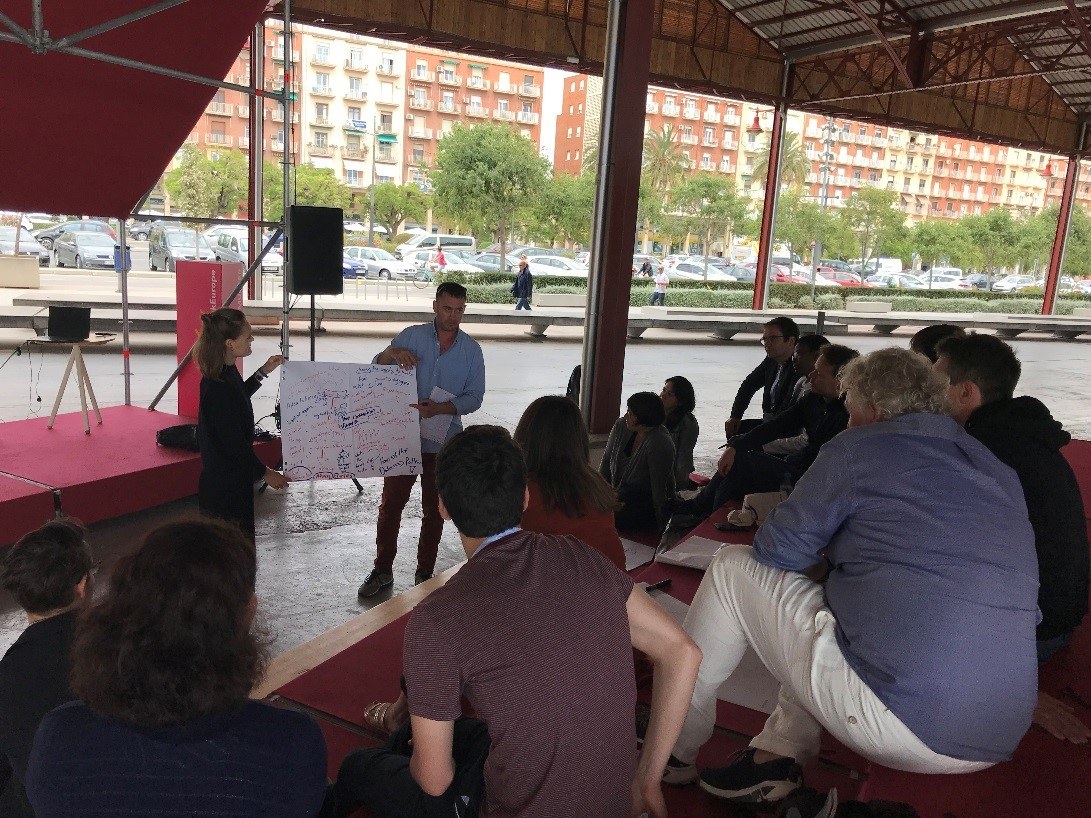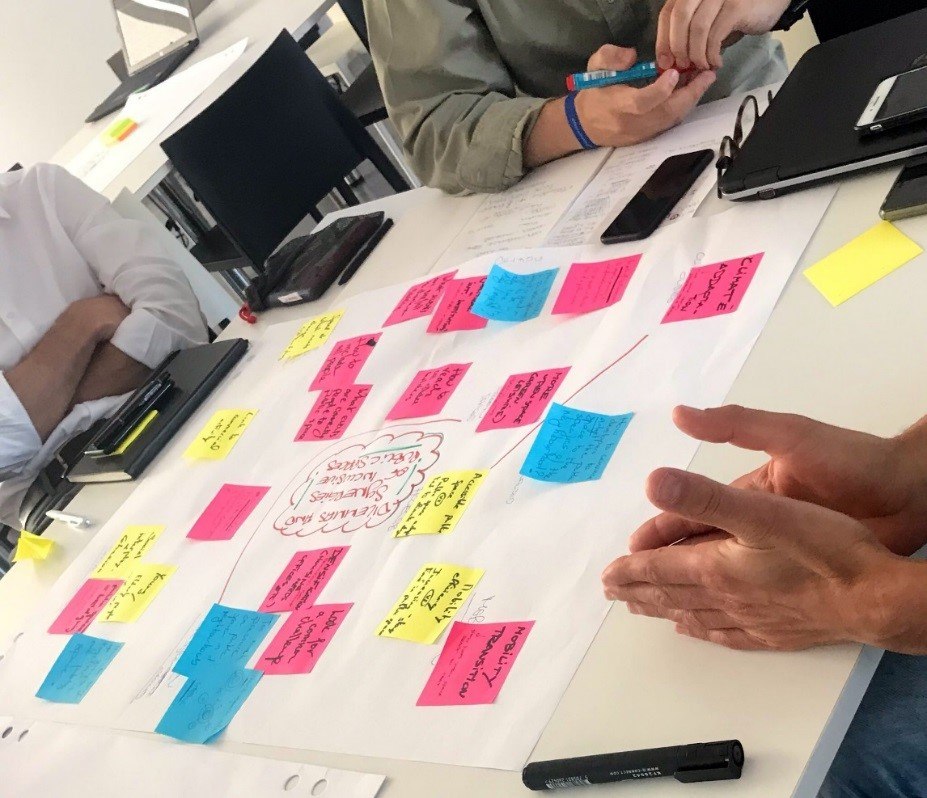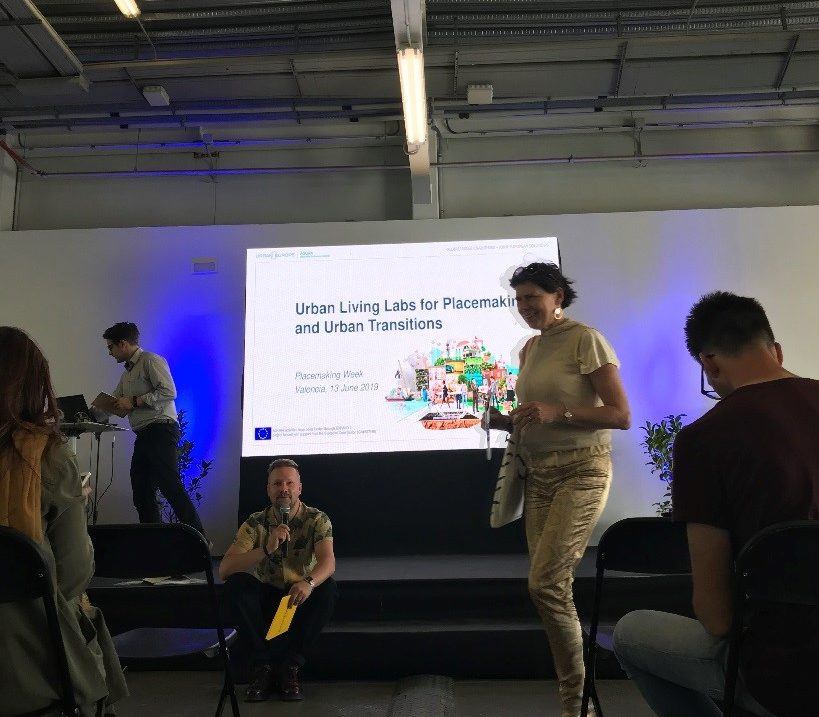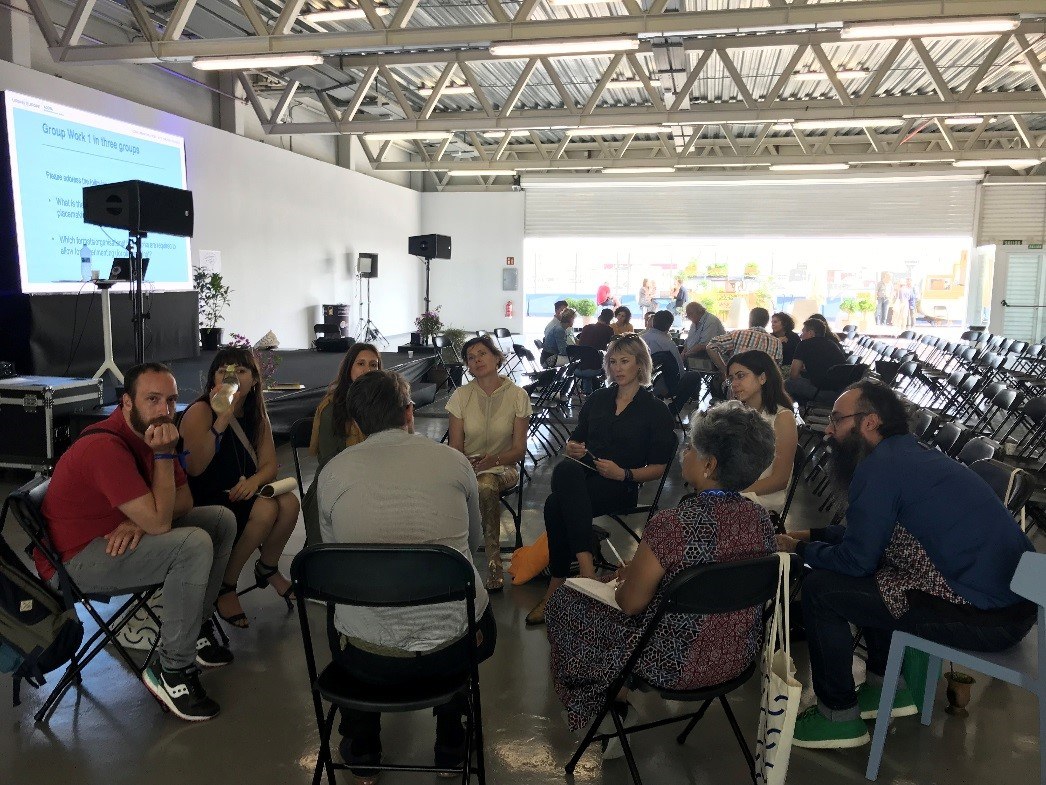Join JPI UE
Faq
FAQ
Please click here for the frequently asked questions we collected.
If you have an additional questions you are welcome to mail us at info@jpi-urbaneurope.eu
The purpose of placemaking is to improve place qualities in street spaces, parks and other public spaces through collaborating with citizens and capitalizing on the local identity. Focus is on developing public space design from the eye level. Placemaking Week Europe was hosted for the third time ever and this year’s topics had to do with placemaking for innovation, creative bureaucracy, open-source sharing from placemaking practice, future-proof cities and waterfront cities. The week was organized by La Marina de Valencia, STIPO and Placemaking Europe with the special participation of the Creative Bureaucracy Festival. JPI Urban Europe was one of the collaborators to the conference together, others were UN Habitat, the European Commission, the European Union, URBACT, Placemaking X, Project for Public Spaces, The City at Eye Level and more.
During the week, UN-HABITAT curated a workshop as part of the Urban Maestro project where JPI Urban Europe is represented in the Advisory Board. Urban Maestro explores the use of informal tools in the governance of urban design. JPI Urban Europe’s two workshops were part of the SRIA 2.0 implementation through AGORA dialogues. One of the workshops during the week was hosted by PlaceCity JPI which is a JPI Urban Europe project working to offer support and resources to local and national placemaking initiatives across Europe.

One of the workshops hosted by JPI Urban Europe focused on the dilemmas involved in developing and maintaining public space, as various stakeholder goals compete and potentially hampers or prevents the achievement of another. This workshop attracted city officials in particular. The participants uncovered a dilemma related to governance and placemaking, discussing for example how to adopt experimental approaches and flexible design as long-term strategies for local governments when at the same time do placemaking with and by users and citizens. Such dilemmas involve issues of control, collaboration, ownership and recognition. Participants asked for research on tactical urbanism regarding how planning processes can move forward fast but with placemaking and so called Baukultur in consideration.
Participants argued that it is important that placemaking does not only happen during transition periods but that it continues as an everyday practice. There were also concerns related to risks of gentrification and how to guarantee inclusiveness in the placemaking process and movement. It is important that placemaking responds to actual and basic needs and not just pleasure or “the extra” in public space, particularly when operating in socio-economically disadvantaged areas. Participants called for research to explore the economic value of placemaking and its contribution to welfare. What are the indicators that are easy and interesting to implement?

This workshop departed from participant’s experiences of Urban Living Labs and focused on matters of scaling up the urban transformation potential of such labs. There is a need to move from the letter of the law to the spirit of the law and for local governments to be tactically flexible in reimagining regulations. Although the participants in the workshop were familiar with experimental methods in urban settings, only 25% knew of examples where experimentation is considered “business as usual” in urban development.

Together, participants formulated certain key messages on the connection between placemaking and urban living labs:

Continuous exploring and testing can be a form of “continuous innovative”, which allows to adapt to uncertainties and is not limited by a rigid result orientation. Continuous experimentation, “digging deeper into the soul of a place”, can reveal new and more narratives and, in the end, allows for broader diversity. At the same time, the risk of gentrification caused by experimental methods should not be underestimated. In the end, it boils down to a dilemma of inclusiveness and exclusiveness of the placemaking practices, outcomes and community. Placemaking is indeed considered experimentation in public space in itself, but critical questions need to be asked. Who initiates placemaking efforts, with what intentions, and whose needs are covered?
The outcome of the workshops at Placemaking Week feeds into JPI Urban Europe’s work with supporting long term experimentation and learning beyond project’s run time. It also contributes to our work on synthesizing findings and results to urban policy makers and integrating experimentation and Urban Living Labs into the DNA of urban governance. The results of the Valencia workshop will be included in a working paper informing the process ahead and coming workshops. JPI Urban Europe regularly organizes workshops in the scope of our Stakeholder Platform AGORA. The next workshop on Urban Living Labs takes place during the Open Living Lab Days 2019 in Thessaloniki, Greece 3-5 September. We are also planning an AGORA Thematic Dialogue on the dilemmas of public space, most likely to take place in November 2019. The outcomes of the workshop in Valencia inform the design and content of this upcoming dialogue. In the meanwhile, you can always keep an eye open for our popular Urban Lunch Talks!